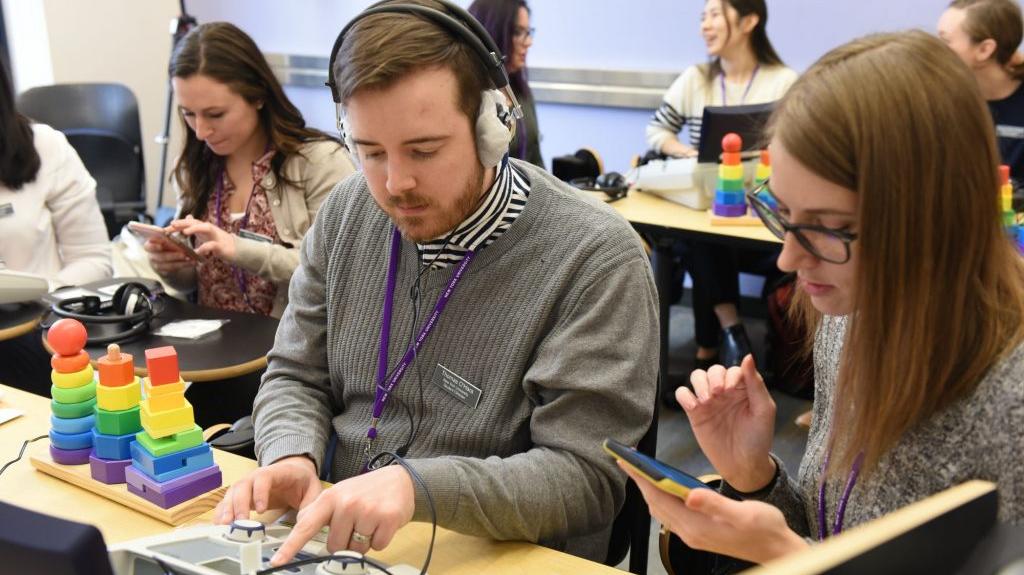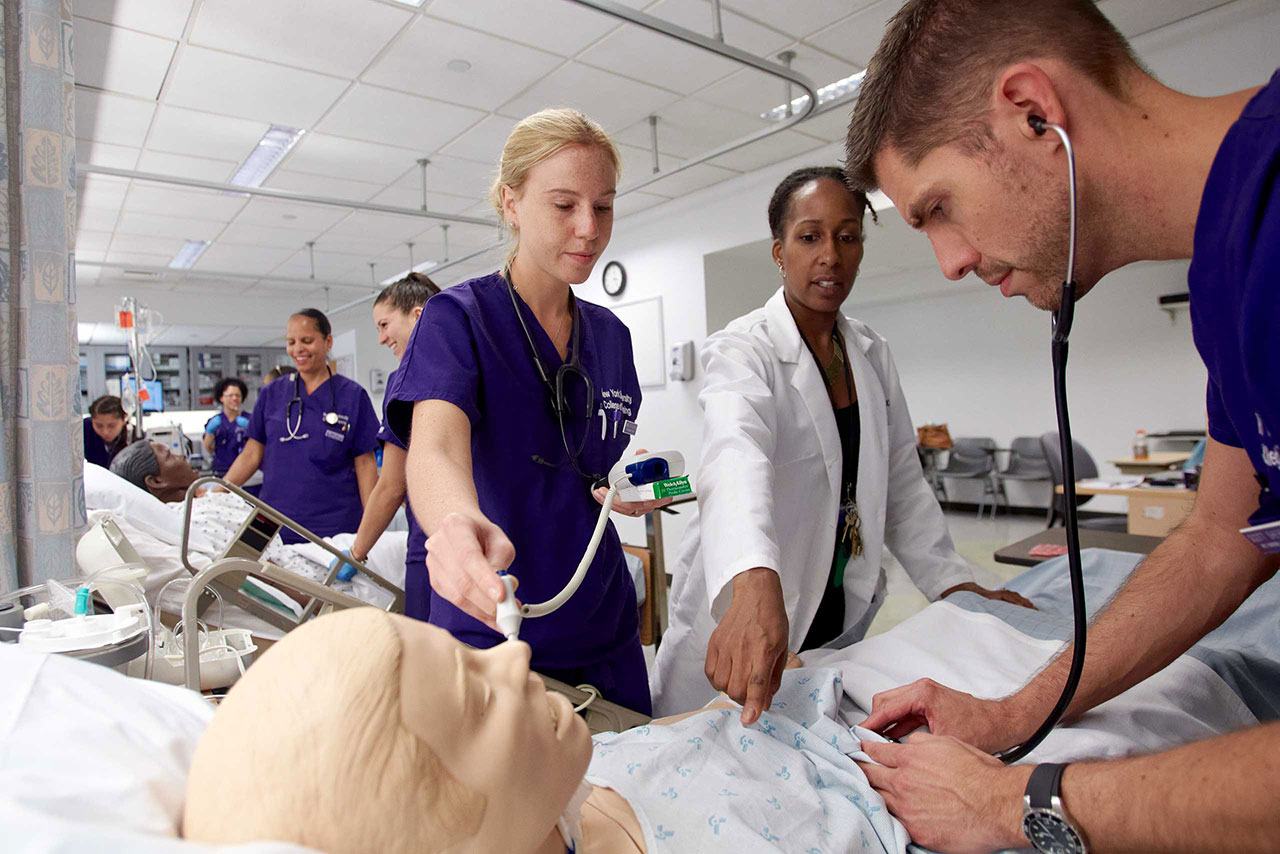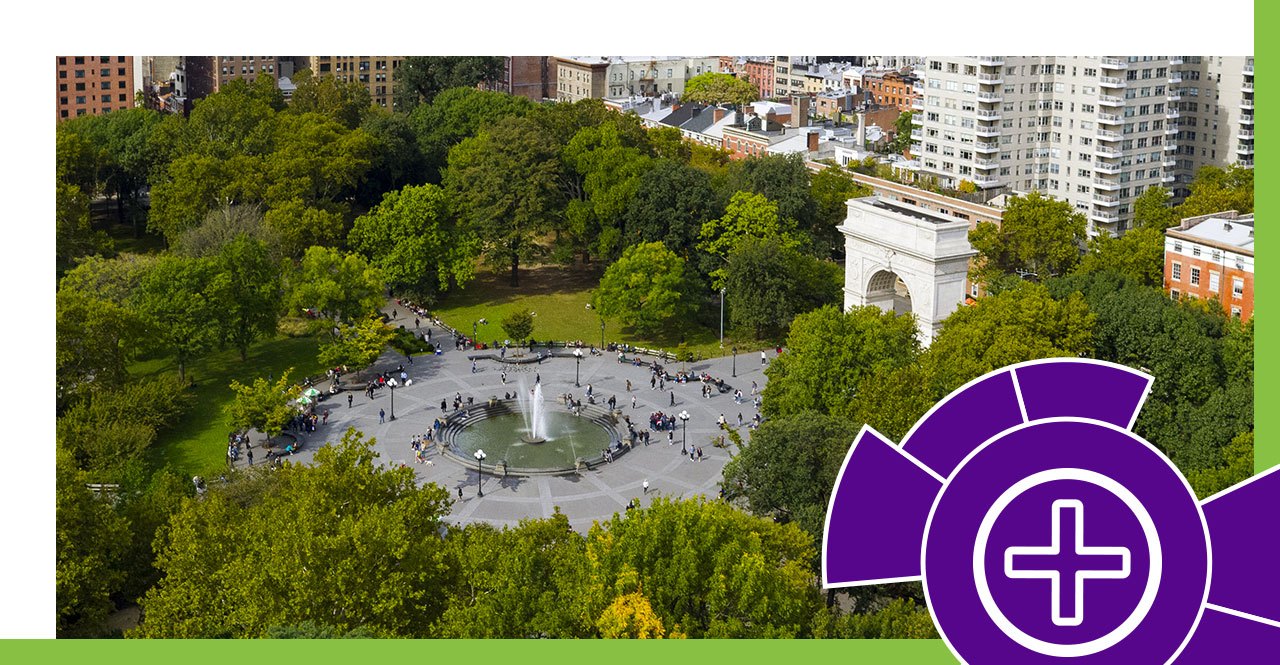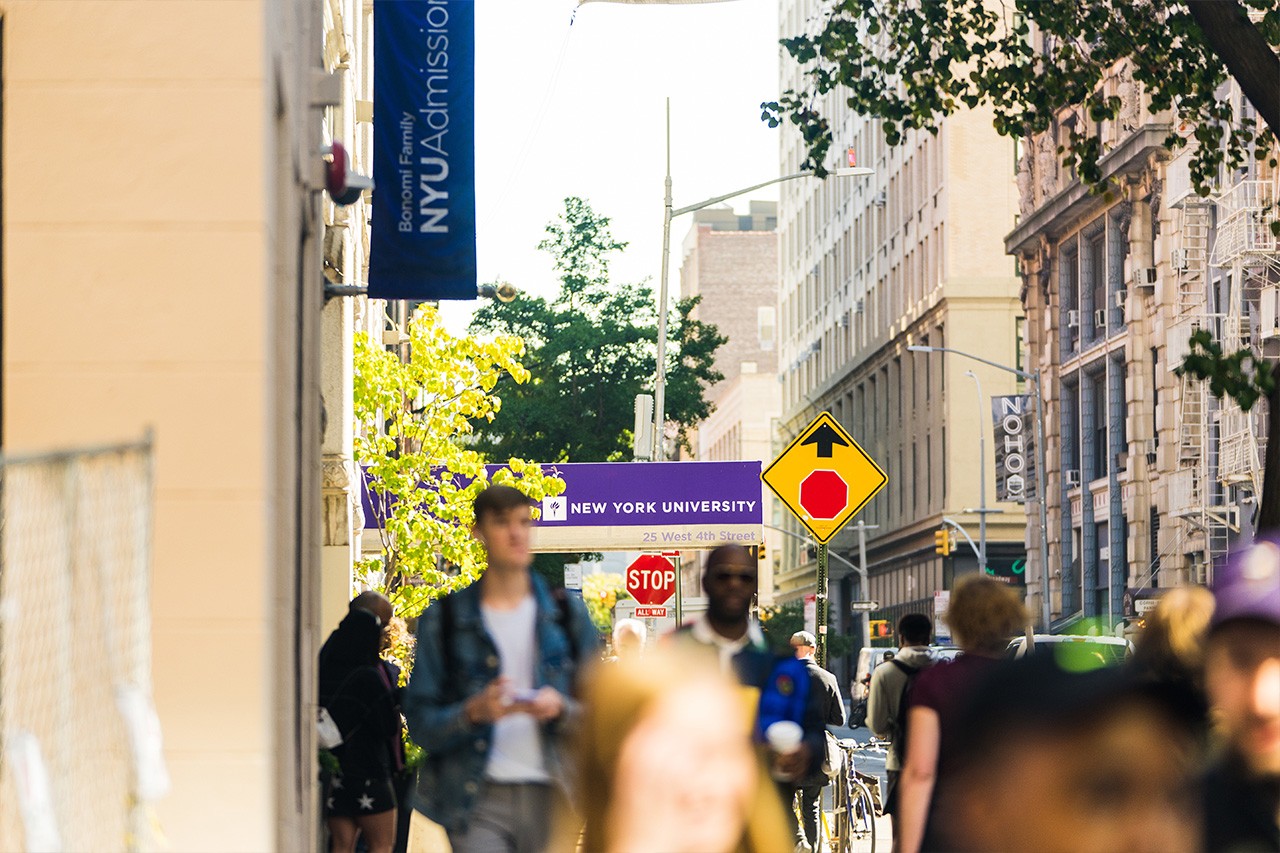
Our rapidly changing and increasingly connected world requires exploration, experimentation, and expertise across disciplines. And these three elements are at the core of the Communicative Sciences and Disorders major at NYU Steinhardt. Combining linguistics, psychology, and physiology, this program provides students with an interdisciplinary approach to treating speech and language disorders across populations and borders. What’s more, it prepares them for life after college, when there are no majors or minors.
Whether you’re interested in going to medical school, pursuing a career in speech-language pathology or audiology, or something else entirely, you’ll find unique opportunities as a communicative sciences and disorders student to get hands-on experience, customize your curriculum, and prepare for what lies ahead.
Become a Communication Expert
Joyce Chung, Class of 2023, first learned about speech-language pathology in high school. “I doubted that I’d ever find a field that encompassed my three greatest passions: language, health care, and service. But communicative sciences and disorders was a perfect fit!” she says. As Communicative Sciences and Disorders majors, aspiring speech-language pathologists learn to prevent, assess, and treat communication and swallowing disorders. And Joyce is taking her education one step further by double-majoring in Global Public Health, a new joint major that responds to an increased demand for public health professionals.
With state-of-the-art facilities and small classes, the Communicative Sciences and Disorders program provides ample opportunities for undergraduates to work alongside faculty. Through lab-based research courses, you’ll contribute to cutting-edge studies. For example, Joyce works at the Biofeedback Intervention Technology for Speech Lab. There, she studies how technology can enhance speech therapy treatments. “I couldn’t be happier that I found this major,” she concludes. “And I hope to inspire more students to pursue this rewarding and impactful career.”
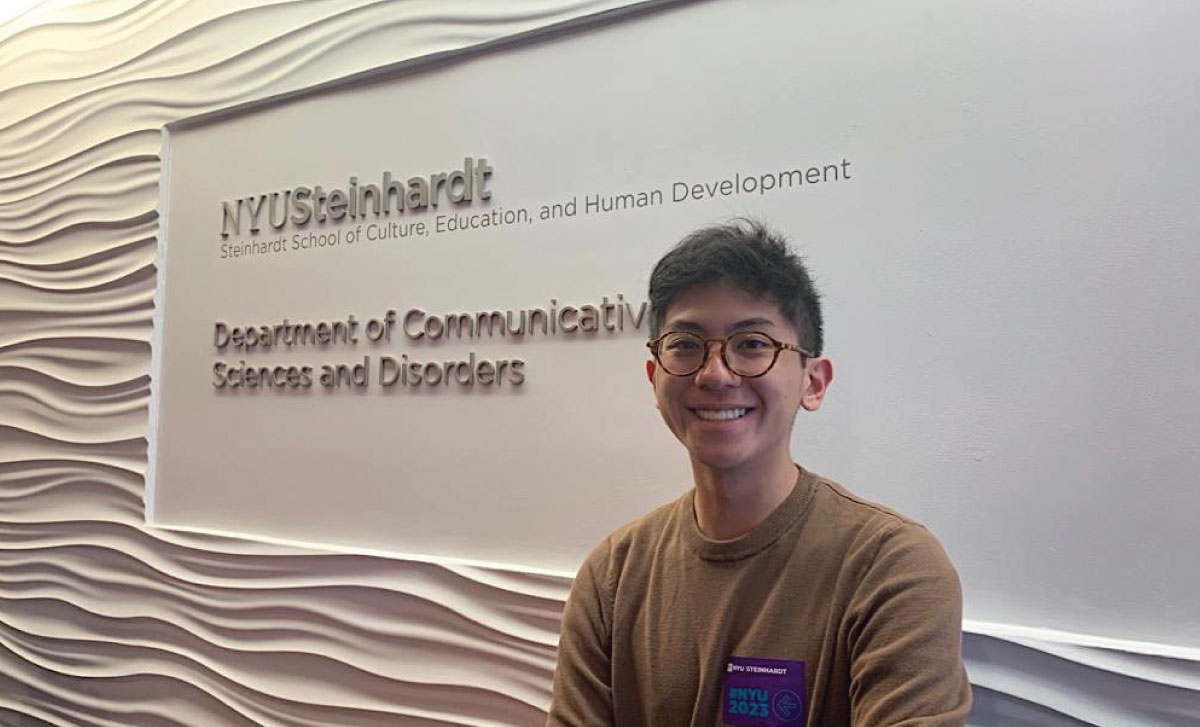
Build a Healthier World
As a 16-year-old speech coach for elementary school students, Kenzo Kimura, Class of 2023, recognized the importance of finding one’s voice early on. Today, he’s a Communicative Sciences and Disorders major on the prehealth track. And he plans to pursue an MD after graduating. “Combining communication with my clinical passion has created an academic adventure I’ve loved ever since,” he says. “For prospective students, my best advice is to explore the major with no limitations.”
If medical school is the next stop on your academic path, the major provides an unparalleled foundation for a diversity of health-related careers. Popular courses include The Talking Brain, in which students learn the basics of communication processes, and Science of Language, which explores how humans use language. And thanks to the department’s small size, every student has the opportunity to bring their own point of view. For Kenzo, who grew up knowing Portuguese and English, this means studying speech development for multilingual Americans.
Help Others Hear Better
Priyanka Gupte, Class of 2021, has seen audiologists and speech-language pathologists since she was diagnosed with hearing loss at 20 months old. Now she’s paying it forward by pursuing a career in audiology, treating those with hearing loss and balance disorders. “With the Communicative Sciences and Disorders major, you become a detective,” she explains. “You can’t rely on textbooks because everyone communicates in their own way.”
Introduction to Audiology inspired Priyanka to pursue a career in the field through its various guest speakers. One class featured a man with a cochlear implant. Another an audiologist who owned her own practice. More recently, Priyanka took Anatomy and Physiology, which included a research component at the NYU Langone Health’s cadaver lab. “It’s rare for undergraduates to have access to a cadaver lab. I loved being able to view anatomy through a real-life model rather than a textbook,” she shares.

Live and Learn in a Global City
We live in a global society, and communication connects us across language barriers and mile markers. To build a cross-cultural perspective, all communicative sciences and disorders students are encouraged to study abroad at one of NYU’s 14 additional global locations. At NYU London, you can take Contemporary Issues in Health Services in the United Kingdom: An Experiential Approach. This course focuses on current issues in health care and includes visits to clinical facilities across London. “We visited the Michael Palin Centre for Stammering, which provides therapy to people who stutter and training courses for therapists,” recalls Janie Rist, Class of 2021. “Speaking to clinical leads and speech-language pathologists inspired me to want to work in a clinical setting one day.”

